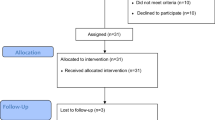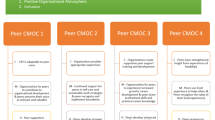Abstract
This chapter discusses the impacts of stigma, societal, untended and self-stigma, on children and adolescents living with HIV (C&ALHIV). This cohort can face particular challenges, whether generic social exclusion and poverty, or those specific to growing up with HIV: naming HIV, family experience of HIV, secrecy, adherence, sexual health, talking to others about HIV and transition into adult care. Consideration is given to the interaction between intended and unintended stigma and these issues, and how this then impacts on the child’s perception of him/herself and the development of self-stigma. It then offers examples of models of psycho-social peer support and participation that have been developed in the UK, focusing on two evaluated models of practice: the residential therapeutic intervention F2B and the participation work of the CHIVA Youth Committee. Both focus on building resilience, increasing self-esteem and challenging self-stigma in C&ALHIV. The chapter concludes that the focus needs to move from protectionist practice in health, social care and the home, to engaging C&ALHIV from a young age in decisions in their heath care, providing them with information and places to safely explore the challenges they face.
Access this chapter
Tax calculation will be finalised at checkout
Purchases are for personal use only
Similar content being viewed by others
Notes
- 1.
- 2.
- 3.
- 4.
British Medical Association (2001) Consent, rights and choices in health care for children and young people. London: BMJ Publishing Group.
- 5.
- 6.
References
British Medical Association. (2001). Consent, rights and choices in health care for children and young people. London: BMJ Press.
Carter, A. (2013). Finding from the survey: The impact of being a member of the CHIVA Youth Committee. London: The Children’s HIV Association.
Conway, M. (2006). Children, HIV, asylum & immigration. London: National Children’s Bureau.
Dodds, C. (2011). Freedom to be summer camp: Outcome evaluation. London: Sigma Research.
Evans, R., & Becker, S. (2009). Children caring for parents with HIV and AIDS. Bristol: The Policy Press.
Ferrand, R., Corbett, E., Wood, R., Hargrove, J., Ndhlovu, E., Cowan, F., Gouws, E., & Williams, B. (2009). AIDS among older children and adolescents in Southern Africa: Projecting the time course and magnitude of the epidemic. AIDS, 23(15), 2039–2046.
Ferris-France, N. (2012). HIV and self-stigma core belief sheet. Dublin: Open Heart House and Trinity College.
Hamblin, E. (2011). Just normal young people: Supporting young people living with HIV in their transition to adulthood. London: National Children’s Bureau.
Harris, J. (2010). Health care professionals and parents/carers evaluation: The impact of the CHIVA summer camp reported by the health care providers and parents/carers. London: The Children’s HIV Association.
Hymas, J. l. (1999). Do children have rights? citing Cullen, S., Empowering children. Retrieved from www.congcreator.com/ifcw99/cullen2.htm at www.nhsexposed.com/patients/child health/childrights.shtml.
Maslow, A. H. (1943). A theory of human motivation. Psychological Review, 50(4), 370–396.
McDonald, S. (2011). HYPNet adherence audit. BHIVA 2011.
Miah, J. (Ed.). (2004). Talking with children, young people and families about chronic illness and living with HIV. London: National Children’s Bureau.
National AIDS Trust. (2008). The myth of HIV health tourism. London: NAT.
Taddeo, D., Egedy, M., & Frappier, J.-Y. (2008). Adherence to treatment in adolescents. Paediatric Child Health, 13(1), 19–24.
Toocaram, L. (2014). Impact upon self-esteem of being a member of the CHIVA Youth Committee. London: The Children’s HIV Association.
UNAIDS (2003). AIDS epidemic update, December 2003. Retrieved on April, 20, 2016, from http://data.unaids.org/pub/Report/2003/2003_epiupdate_en.pdf.
United Nation (2009). Convention on the rights of the child. Retrieved on April, 20, 2016, from http://www2.ohchr.org/english/bodies/crc/docs/AdvanceVersions/CRC-C-GC-12.pdf.
WHO. (2011). Guideline on HIV disclosure counseling for children up to 12 years of age. Geneva: World Health Organization.
WHO. (2014). Adolescent HIV testing, counselling and care: Implementation guidance for health providers and planners. Geneva: World Health Organization.
Author information
Authors and Affiliations
Corresponding author
Editor information
Editors and Affiliations
Rights and permissions
Copyright information
© 2016 Springer International Publishing Switzerland
About this chapter
Cite this chapter
Conway, M. (2016). The Power of Peers: Self-Stigma Impacts, Peer Support and Engagement. In: Liamputtong, P. (eds) Children and Young People Living with HIV/AIDS. Cross-Cultural Research in Health, Illness and Well-Being. Springer, Cham. https://doi.org/10.1007/978-3-319-29936-5_19
Download citation
DOI: https://doi.org/10.1007/978-3-319-29936-5_19
Published:
Publisher Name: Springer, Cham
Print ISBN: 978-3-319-29934-1
Online ISBN: 978-3-319-29936-5
eBook Packages: Social SciencesSocial Sciences (R0)




